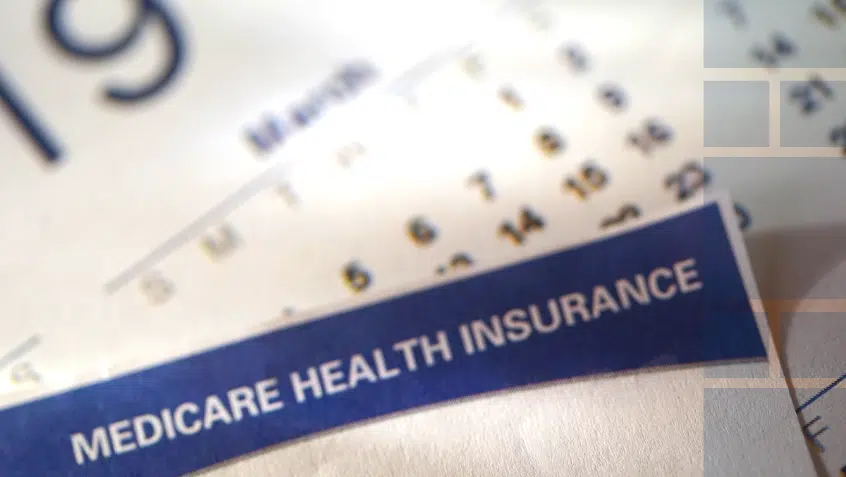Join Us Live for a Discussion on Medicare, Democracy, and the Future of Health Care
Medicare Rights Applauds Passage of the House Build Back Better Bill

This Thanksgiving, we are grateful to advocates like you, for your tireless work to improve policies, programs, and lives. The recent passage of the Build Back Better (BBB) budget reconciliation bill in the U.S. House of Representatives shows just how important your voices are.
The House-passed bill incorporates many of Medicare Rights’ long-standing priorities to meaningfully improve the lives of people with Medicare and their families. It would reduce the cost of prescription drugs, help older adults and people with disabilities live with greater dignity, and ease the pressure many caregivers and families face.
In part, the BBB’s Medicare sections would do so by establishing a hearing benefit under Part B, filling a harmful gap in coverage; by allowing Medicare to negotiate prices for certain drugs, better controlling program and consumer costs; and by restructuring Part D to cap beneficiary expenses and realign pricing incentives, delivering tangible affordability improvements while addressing the underlying drivers of those costs.
The bill would also make several critical Medicaid and Affordable Care Act (ACA) updates, such as increasing funding for Medicaid Home- and Community-Based Services (HCBS); making Medicaid’s Money Follows the Person program and spousal impoverishment protections permanent; easing access to Medicaid in non-expansion states and for people post-incarceration; and extending financial assistance for ACA coverage.
Together, these and other BBB reforms would strengthen the health and financial security of millions of Americans. Every day on our national helpline, we hear from people who would benefit from these changes. We thank the House for championing these solutions and, again, you for your advocacy! You truly made a difference, from building momentum to effecting landmark policy shifts.
The bill now goes to the Senate, where revisions are expected. We look forward to continuing to work together to ensure any final bill most effectively positions Medicare to meet current and future beneficiary needs.
As the recently announced 2022 Part B premium hike shows, this necessarily includes doubling down on drug pricing and affordability protections. CMS notes a main reason for the 15% spike—the biggest increase in 15 years—is the need for a contingency reserve to cover the potential costs of the expensive new Alzheimer’s drug Aduhelm, for which a coverage decision is expected next year.
This underscores what we already know: people with Medicare are far too exposed to high and rising drug prices. Thankfully, the BBB would begin to address this. But its remedies would be phased-in, not immediate. And many with lower incomes would remain at risk; the BBB does not update rules that unduly limit participation in Medicare’s health care and prescription drug affordability programs. Current guidelines leave beneficiaries with annual incomes just above poverty ($12,880 for an individual and $17,420 for couples in 2021) or modest savings ineligible.
As a result, many who need this help are unable to get it. Half of all people with Medicare live on $29,650 or less per year. One quarter live on $17,000 or less, and nearly 30% have incomes between 100% and 200% FPL. They also have limited savings. This is particularly true for enrollees of color: 27% of Hispanic and 25% of Black Medicare enrollees have no savings at all.
Without changes to outdated eligibility rules, the cost of care, and help paying those costs, will continue to be out of reach for an ever-growing number of beneficiaries—likely leading to worse health outcomes, more deeply entrenched inequities, and higher program costs.
Lawmakers could prevent this by coupling the BBB’s drug pricing provisions with improved access to Medicare’s low-income assistance programs—Medicare Savings Programs (MSPs) and the Part D Low-Income Subsidy (LIS), also known as “Extra Help.” This dual-track approach, modernizing financial assistance and reforming the program, would best provide immediate and lasting relief to people with Medicare and their families.
Show Comments
We welcome thoughtful, respectful discussion on our website. To maintain a safe and constructive environment, comments that include profanity or violent, threatening language will be hidden. We may ban commentors who repeatedly cross these guidelines.
Help Us Protect & Strengthen Medicare
Donate today and make a lasting impact
More than 67 million people rely on Medicare—but many still face barriers to the care they need. With your support, we provide free, unbiased help to people navigating Medicare and work across the country with federal and state advocates to protect Medicare’s future and address the needs of those it serves.
The Latest
Most Read
Add Medicare to Your Inbox
Sign up to receive Medicare news, policy developments, and other useful updates from the Medicare Rights.
View this profile on InstagramMedicare Rights Center (@medicarerights) • Instagram photos and videos









